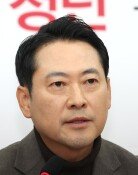[From NYT] Planning a new North Korean strategy
[From NYT] Planning a new North Korean strategy
Posted March. 11, 2001 16:55,
When it comes to confronting paranoid dictatorships, Washington has long been trapped between two extreme strategies: embargo and isolate, which is how it has dealt with Saddam Hussein for a decade; or engage and enmesh, also called the China strategy.
Neither approach has proven very satisfactory, perhaps because they overestimate America`s influence. Fidel Castro has survived four decades of American isolation. And while a decade of commercial and cultural engagement with China has nudged along economic freedoms, the State Department concluded recently that the treatment of dissidents has worsened.
Now, amid apparent rifts in his party and his administration, Mr. Bush has been forced to face the fascinating and complex case of North Korea.
As Mr. Bush discovered last Wednesday, when President Kim Dae Jung of South Korea visited him here, these are very confusing times for anyone dealing with Pyongyang. Bowing to a concerted campaign of economic and nationalistic inducements plotted by Mr. Kim, the North has cracked open its door. It is finally executing old agreements to create rail and road links across the demilitarized zone, opening diplomatic relations with European powers and keeping promises to halt its terrifying missile tests and commando raids.
But the country remains the closest thing on Earth to the dark side of the moon, so no one knows whether this outreach is a change of heart or Asia`s modern-day answer to the Trojan horse.
Even more perplexing, Mr. Bush finds himself caught between those ? including, it seems, Secretary of State Colin Powell ? who want to see if North Korea is serious about negotiating an end to its missile exports and manufacturing, and the Washington hard-liners who think the best thing to do with North Korea is to treat it the way Ronald Reagan dealt with a weakening Soviet Union. That is, turn the economic screws, confront it with military technology that it can`t match and hope it will collapse.
"I do have some skepticism about the leader of North Korea," Mr. Bush said of Kim Jong Il, with whom President Clinton nearly concluded a missile control deal last year. He joins a long list of such skeptics.
But he begged the largest question: Since North Korea is in many ways a unique case ? capable of doing extraordinary harm to the South and perhaps Japan, but not capable of surviving a lengthy war with the West ? either engaging or confronting it represents a unique set of risks.
The military threat is well known: With fearsome artillery so close to Seoul, North Korea`s leaders could destroy one of Asia`s most vibrant cities in minutes. Add to that the country`s remarkable isolation, which has bred enormous mystery about it in the West and a paranoia among its own leaders. They believe ? quite fervently ? that those 37,000 American troops on the border are poised to invade them, not just to protect the South.
And in recent years they appear to have developed a burning desire for legitimacy, symbolized by their intense focus on being taken seriously by the United States. So far their only strategy to achieve that has been blackmail. The countries that get attention and aid, they figured out, are those that strike a little fear into the hearts of the Pentagon. So they develop missiles and nukes, then bargain them away.
For those reasons, it`s no surprise Mr. Bush wants to sound a hard line: What new president wants to be taken as a patsy? Or, as one of Mr. Bush`s aides said last week, "I`m kind of tired of the old pattern where they shoot off a missile and we send them a bucket of wheat."
But taking a hard line has plenty of risks, too. This is hardly an empire, evil or otherwise; it can`t even feed its own people. It is also astonishingly totalitarian, something not too difficult to pull off in a small country where radios are fixed to one or two approved stations and the phone book is the size of a school directory. That`s why Mr. Kim, the South Korean leader, arrived here to argue that North Korea`s problem is rooted in deep insecurity, and that as soon as Seoul and Washington solve that, some of the knottier questions ? like missile exports ? might begin to melt away.
SO far, the Bush White House isn`t buying.
"We all have the same goals, but very different perceptions," one of Mr. Kim`s most senior aides said. "We cannot afford a collapse of North Korea; this is not like West Germany absorbing East Germany. And what happens if the North Korean state falls? A military government takes over, and the prospect of a last, desperate war becomes very real."
In fact, there are two reasons that Kim Dae Jung approaches the North so differently than Mr. Bush`s aides do.
The first is economic: If the North collapses, or lashes out, it`s not the United States that will take the hit. A surge of refugees across the border would trigger social chaos in the South; a surge of workers would undercut South Korea`s relatively high wages.
The second is a matter of psychology: the cartoon imagery in which the West has cast Kim Jong Il all these years. Some of it reflects reality, but some does not. Kim Jong Il has, in past decades, arranged for kidnappings; he has exported missiles; he has probably manufactured one or two nuclear weapons. Before his father`s death in 1994, some considered him a pornography- loving fool who would be quickly overthrown. But he`s still there, and new intelligence estimates say he is firmly in charge.
President Kim, who won last year`s Nobel Peace Prize, has also realized that China and Russia will no longer keep North Korea afloat. "I am aware that some read the changes on the part of North Korea as being merely temporary or tactical," he said. But either way, he added, "one thing is certain: for North Korea change is not a matter of choice but of survival."
James R. Lilley, who served as ambassador to South Korea under President Reagan and Mr. Bush`s father, said that "you definitely have a clash of views here."
"It`s our belief that the North Koreans have to show us far more than they have," he said. "It`s Kim`s belief that we are overly legalistic ? that he can look in the eyes of the North Koreans and see their `nunchi,` their soul." Mr. Lilley isn`t quite sure what that nunchi looks like. But Mr. Bush isn`t likely to find out until he looks into their eyes, too.







